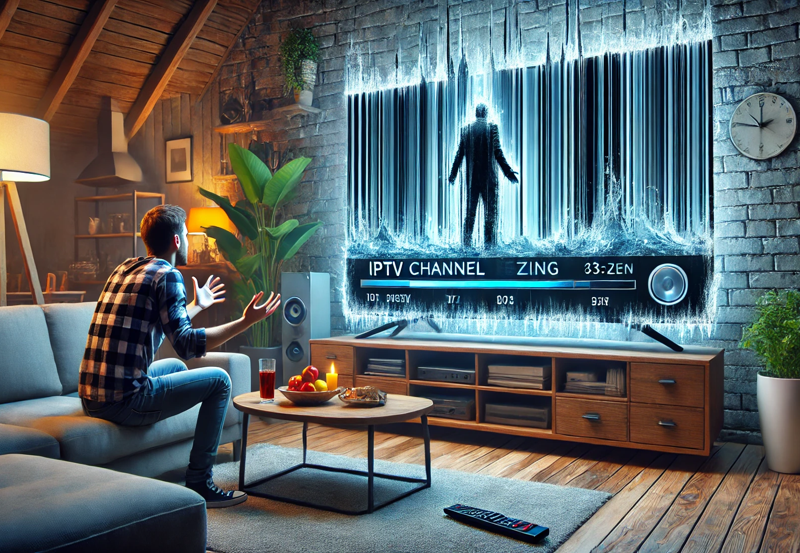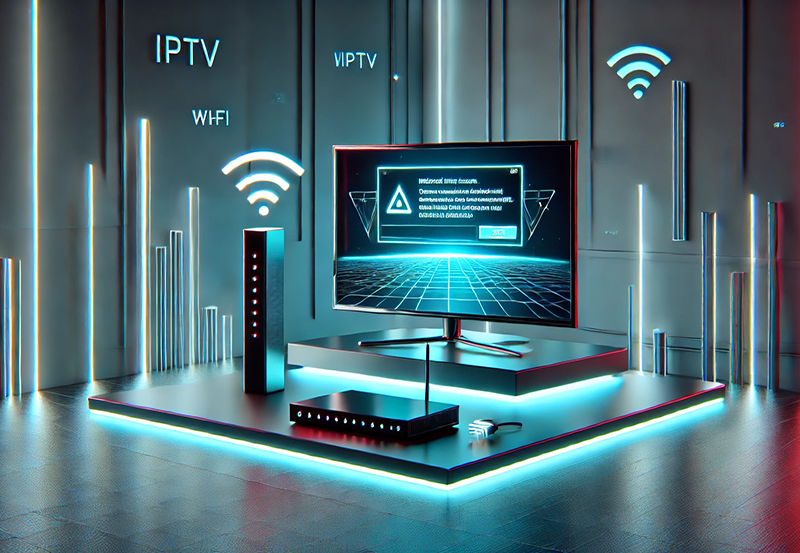Buffering is one of the most common issues IPTV users face, disrupting the streaming experience and causing frustration. Buffering occurs when there’s a delay in loading data for playback, often due to internet speed, network congestion, or server issues. In this guide, we’ll explore the causes of buffering and provide actionable solutions to ensure smooth IPTV streaming. Looking for a 3 Months IPTV Subscription?
What Causes Buffering in IPTV?
- Slow Internet Speed:
- Insufficient bandwidth to stream high-quality content.
- Network Congestion:
- Too many devices connected to the same network, consuming bandwidth.
- IPTV Server Overload:
- High traffic on the IPTV provider’s server.
- ISP Throttling:
- Internet Service Providers intentionally slowing down streaming traffic.
- Device Performance:
- Limited resources or outdated software on the streaming device.
- High Bitrate Streams:
- Streaming content with a bitrate higher than your internet connection can handle.
How to Fix Buffering in IPTV Streaming
1. Check Your Internet Speed
- Required Speeds:
- SD streaming: 5 Mbps
- HD streaming: 10 Mbps
- 4K streaming: 25 Mbps
- How to Test:
- Use tools like Speedtest.net to measure your internet speed.
- Solution:
- Upgrade your internet plan if your speed is below the required threshold.
2. Use a Wired Connection
- Why?:
- Ethernet connections are more stable and faster than Wi-Fi.
- How?:
- Connect your IPTV device directly to your router using an Ethernet cable.
3. Optimize Your Wi-Fi Network
If using Wi-Fi is unavoidable:
- Position Your Router:
- Place it in a central location, away from walls or electronic interference.
- Use the 5 GHz Band:
- Offers faster speeds and less interference compared to the 2.4 GHz band.
- Upgrade Your Router:
- Invest in a modern router that supports the latest standards like Wi-Fi 6.
4. Adjust Streaming Quality
- Lower the streaming resolution in your IPTV app’s settings:
- Switch from 4K to 1080p or 720p for smoother playback.
5. Use a VPN
- Why?:
- Bypass ISP throttling, which slows down streaming speeds.
- How?:
- Install a reliable VPN (e.g., ExpressVPN, NordVPN) on your device or router.
- Tip:
- Choose a VPN server close to your location for better performance.
6. Clear Cache and Data
- Overloaded cache files can cause buffering in IPTV apps.
- On Android Devices:
- Go to Settings > Apps.
- Select your IPTV app.
- Tap Storage > Clear Cache.
- On iOS Devices:
- Reinstall the app to clear its data.
7. Restart Your Streaming Device
- Why?:
- Resolves temporary glitches and refreshes your device’s resources.
- How?:
- Turn off your device.
- Unplug it (if applicable) for 30 seconds.
- Restart and relaunch the IPTV app.
8. Reduce Network Congestion
- Disconnect devices not in use from your network.
- Limit bandwidth-heavy activities like downloads, gaming, or video calls during streaming.
9. Check the IPTV Server Status
- If the buffering persists, the issue might be with the IPTV provider’s server.
- How?:
- Contact your provider to check for server maintenance or issues.
- Switch to another provider if server problems are frequent.
10. Update Your IPTV App and Device
- Outdated software can lead to compatibility issues and buffering.
- Update Process:
- Check for updates in your device’s app store or settings.
- Update your device’s firmware to the latest version.
11. Enable QoS (Quality of Service)
- What is QoS?:
- A router feature that prioritizes IPTV traffic over other network activities.
- How to Enable:
- Log in to your router’s admin panel.
- Navigate to QoS settings.
- Add your IPTV device or app to the priority list.
12. Switch to a Different IPTV Provider
If your current provider frequently experiences buffering issues:
- Research and switch to a more reliable IPTV service with better servers and bandwidth management.
Preventing Buffering in IPTV
- Maintain a Stable Internet Connection:
- Use a high-speed plan and minimize network interruptions.
- Choose a Reliable IPTV Provider:
- Select providers known for stable servers and high-quality streams.
- Regularly Update Devices and Apps:
- Keep your apps and devices up-to-date for optimal performance.
- Monitor Network Usage:
- Avoid simultaneous high-bandwidth activities during IPTV streaming.
Conclusion
Buffering issues in IPTV can be frustrating, but most problems can be resolved with simple fixes like optimizing your internet connection, adjusting streaming quality, or using a VPN. By following the steps outlined in this guide, you can enjoy seamless IPTV streaming without interruptions. For persistent issues, consider switching to a more reliable IPTV provider.
What to Do When IPTV Channels Are Not Loading





